14ª edición del Foro MEDays en Tánger: el Davos africano
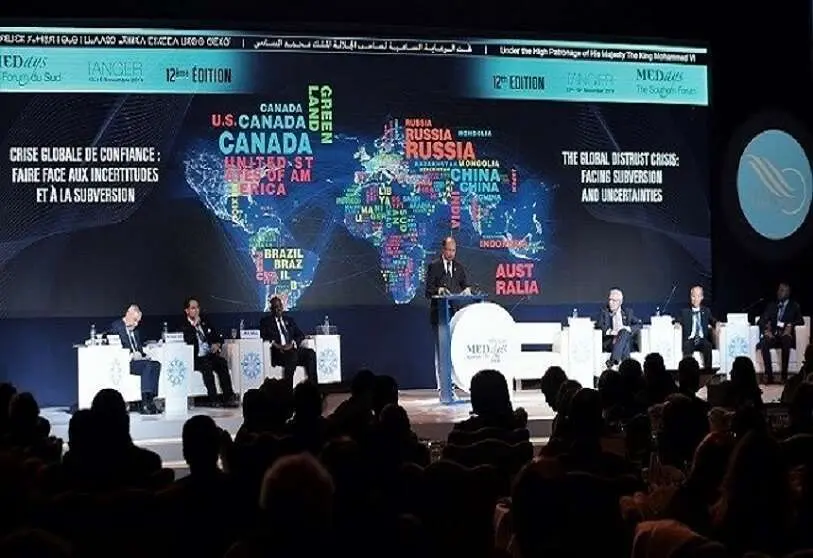
The 14th edition of the MEDays Forum, organised by the Amadeus Institute, a Moroccan think tank based in Rabat and chaired by Brahim Fassi Fihri under the patronage of King Mohamed VI, was held in Tangiers from Wednesday 2 November to Saturday 5 November.
The MEDays Forum is considered by many observers to be the African Davos, as it is attended by the majority of foreign heads of state and government and serves to promote Morocco as an effective tool of 'soft power' in line with the foreign policy pursued by King Mohammed VI.
The main presentations and panel discussions revolved around numerous themes, but all converged on several important aspects: the impact of the COVID pandemic, the crises triggered by Russia's invasion of Ukraine, and the economic and security challenges in Africa leading to what has been called "a new world order".
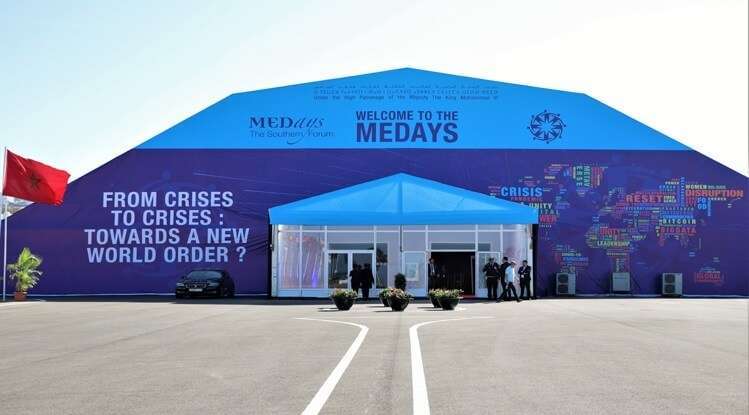
The Forum in numbers held more than 200 international conferences, more than 5,000 participants, more than 80 government representatives, including heads of state and government and some 30 ministers, more than 200 journalists, 50 sessions and round tables, more than 500 entrepreneurs and investors, and more than 100 countries represented.
The opening session on 2 November was led by Brahim Fassi, founder of the Amadeus Institute, who opened MEDays2022 with concerns about the war in Ukraine, the problems of climate change and the economic future of Africa as a whole. But the great speaker of the opening session was the President of Liberia, who analysed the challenges arising from the major crises inherent to COVID, the various contemporary wars and the complicated situation of agro-security in Africa, and who received resounding applause from all the attendees.
Of particular note was the round table on "The Challenges of the African Union", which was the inaugural table at which various heads of African states took part, including the former president of Mali Traore and Mamadou Tangara, the Gambian Minister of Foreign Affairs, who emphasised the need for unity between the different African countries.
On 3 November, the opening plenary session was on "Security crises and instabilities in Africa: what architecture of peace, security and stability for the continent?"
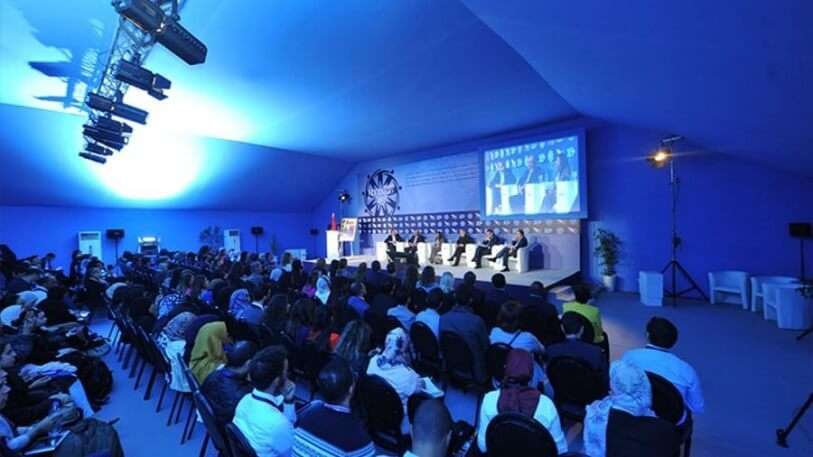
Of particular note was the presentation by the former president of Mali Traore, who commented that a victory for jihadism would mean opening the way to ignorance and obscurantism, and that we must all unite to fight against terrorism and jihadism in the Sahel region, where the victims are civilians in these security crises and where horrible crimes are committed in the name of Islam, recalling that in Africa many countries have unlimited resources that are exploited by other countries. Africa must fight this enemy from all countries and from all communities. Today the Sahara and the Sahel are victims of these threats. It is a serious security crisis that affects not only the regional but also the global level. The Rwandan Minister of Foreign Affairs and International Cooperation stated that we cannot talk about security without talking about good governance.
For his part, Tiare, Executive Secretary of the G5 Sahel, from Burkina Faso, stated that there is a serious funding problem in the fight against jihadist terrorism in the Sahel and that we have many partners offering security and many countries suffering from terrorism. The International Community and the African Union must, together with ECOWAS, help these countries that are suffering from terrorism and are fighting this major problem on their own.
At the roundtable on "Terrorism, political instability and security threats in Africa: what solutions to end this vicious circle?", former Malian Prime Minister Moussa Mara named three elements to combat in governance: coups d'état, corruption and nepotism. Several situations lead to a coup d'état and corruption is one of them.
The former Malian Foreign Minister said that the multiplication of actors and methods makes the fight more difficult and that decentralisation can help to combat terrorism. The creation of an African intelligence agency to fight and combat terrorism was also proposed as part of the roundtable. The four pillars on which the round table focused were: the fight against terrorism in Africa and the search for solutions to combat it, transformations for large African cities, investing in education, and the keys to development, recovery and competitiveness.
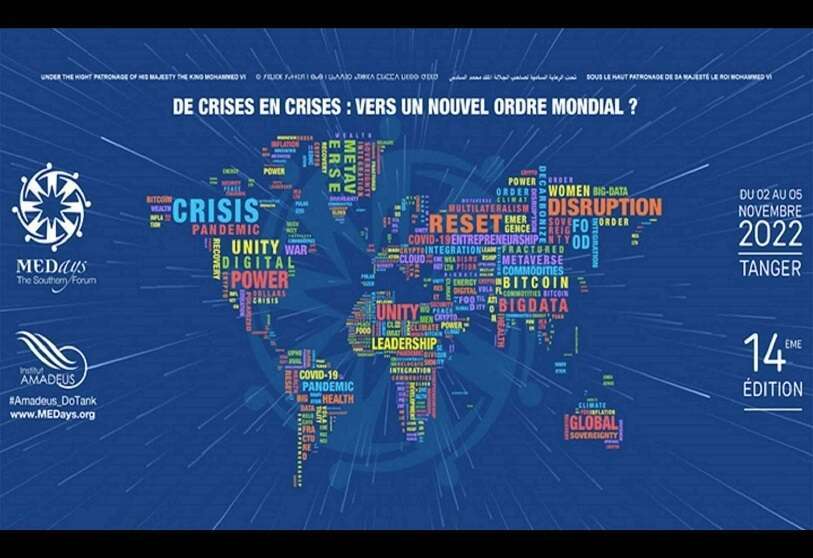
All the sessions and roundtables of the Forum were very interesting, but one of the most heated was the one on "Moroccan Sahara: focus on recent dynamics", with the participation of Emmanuel Dupuy, President of the Institute for Prospective and Security in Europe (IPSE) of France, Abdou Diop, Managing Partners Mazars of Morocco, Moubarak Lo, President of the Emergency Institute of Senegal, and Amine Laghidi, international expert in Diplomacy and Sovereignty of Morocco.
Diop pointed out that the southern provinces rank first among Morocco's regions in terms of GDP per capita, and have become "a pilot region in energy transition and a real hub for Africa. The African Union can no longer afford to put this issue on hold, depending on the wishes of one or the other", and pointed out that the artificial dispute over the Moroccan Sahara is "a crucial issue for the economic integration of the continent".
For the Senegalese researcher, the inclusion of the Sahrawi Arab Democratic Republic in the African Union was "a historical mistake", pointing out that the current balance of power on the African continent is largely favourable to Morocco.
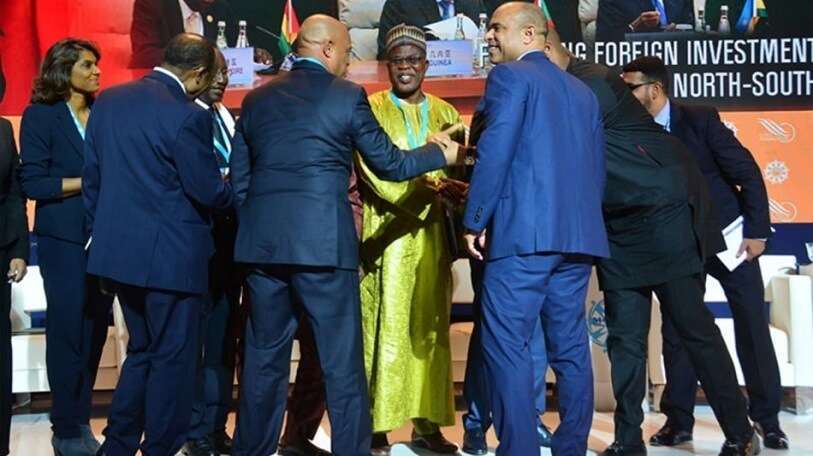
"Today, the balance of power is clear, more than 70% of African states are in favour of the Moroccan position and the autonomy plan presented by Morocco," he said, estimating that many other countries will soon align themselves with the continent's position because Morocco's majority autonomy plan is "the only viable solution to this dispute".
Emmanuel Dupuy, pointed to Algeria's direct involvement in this artificial conflict. "It is a question of survival for the Algerian regime which needs, among other things, to justify increasing its defence budget," he said, adding that the Sahara issue should have been resolved peacefully 40 years ago through diplomacy and democracy. "The Sahara issue shows the great fragility of Algeria and its hyper-dependence on hydrocarbons," adding that some European countries have "made the mistake of being singularly dependent" on Algerian gas exports at the expense of a privileged relationship with Rabat.
Amine Laghidi said UN Security Council Resolution 2654 on the Sahara is "a recognition by the international community of the seriousness and credibility of the Moroccan autonomy plan", and pointed out that any solution to this dispute will only take place "under Moroccan sovereignty and with full respect for the integrity of the Kingdom".
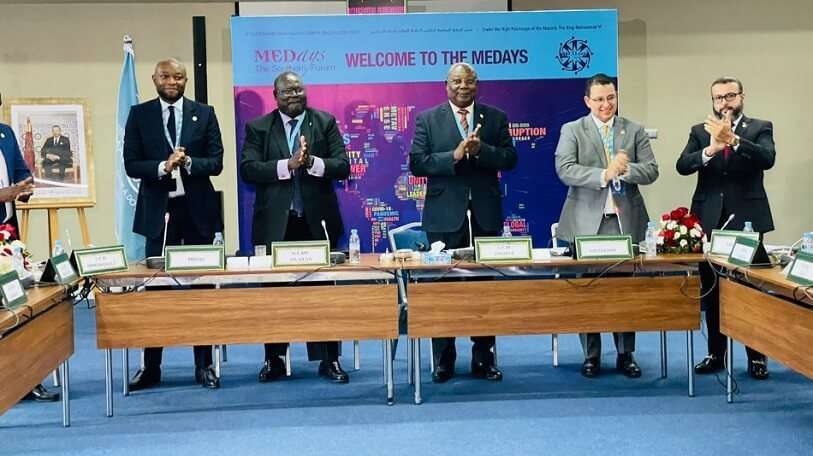
The Moroccan autonomy initiative is a "viable" plan, recalling Morocco's experience in advanced regionalisation, especially in the southern provinces, "champions of participatory democracy in the Kingdom with a very high electoral participation".
Furthermore, he added, Resolution 2654 had enshrined the round table process and reaffirmed "Algeria's full political, legal and moral responsibility before history" in relation to the dispute over the Moroccan Sahara.
The Security Council, he underlined, confirmed Algeria "as a party to the conflict in a very clear manner". He also called for the departure of the Polisario Front from the African Union to the general applause of the audience.
Also present at the Forum was Emanuela del Re, the European Union's representative for the Sahel, who spoke about Libya and the Sahel and whether we are facing two scenarios of impossible pacification.
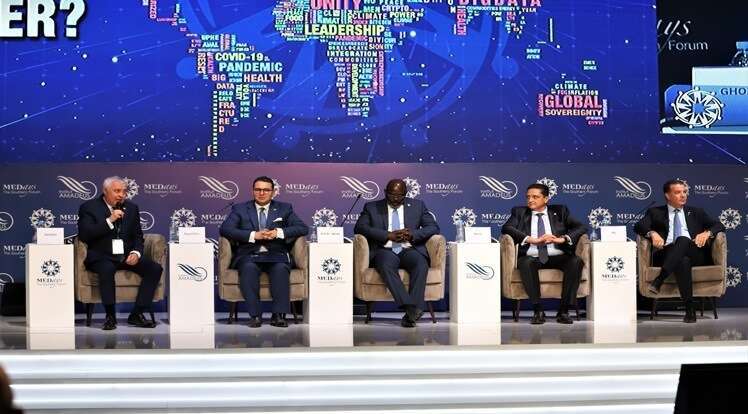
A panel discussion on 4 November on "Frontlines: the syndromes of a new Cold War" discussed the impact of Russia's war in Ukraine and what is to blame for the current food and energy security crisis.
Also very important was Friday 4 November when 16 former African prime ministers and foreign ministers launched a solemn appeal for the expulsion of the Sahrawi Arab Democratic Republic from the African Union in the form of "The Tangiers Appeal", published at the end of the round table "The African Union in the light of the Sahara issue". According to the document, SADR "does not have any of the constituent elements of a state, namely a territory, a population and an effective government", adding that it does not enjoy any sovereignty, independence or international legal responsibility.
The closing ceremony was held on Saturday 5 November with the President of the Republic of Cape Verde, José Maria Pereira Neves, who was elected winner of the MEDays 2022 Grand Prize, succeeding the President of Senegal, Macky Sall, who won this prize at the last edition held in person in 2019.
The MEDays Forum is undoubtedly a very important international meeting point not only for Africa, but also for the rest of the countries to take the pulse of international society and especially the African countries that have much to say and much to contribute to this New World Order.









